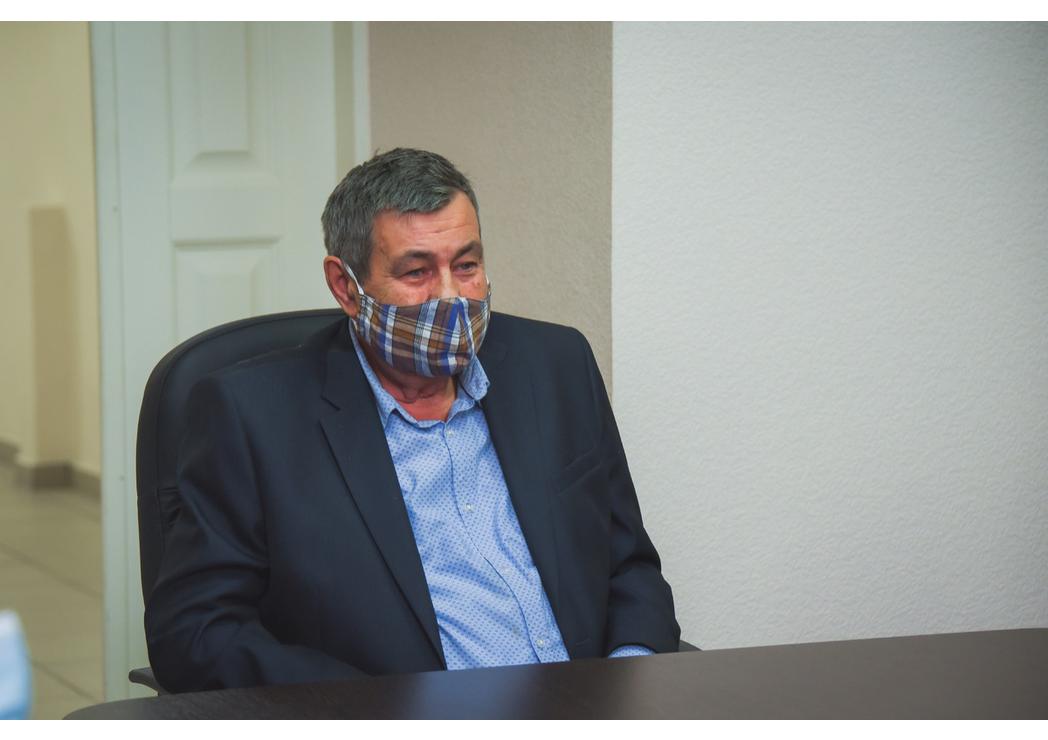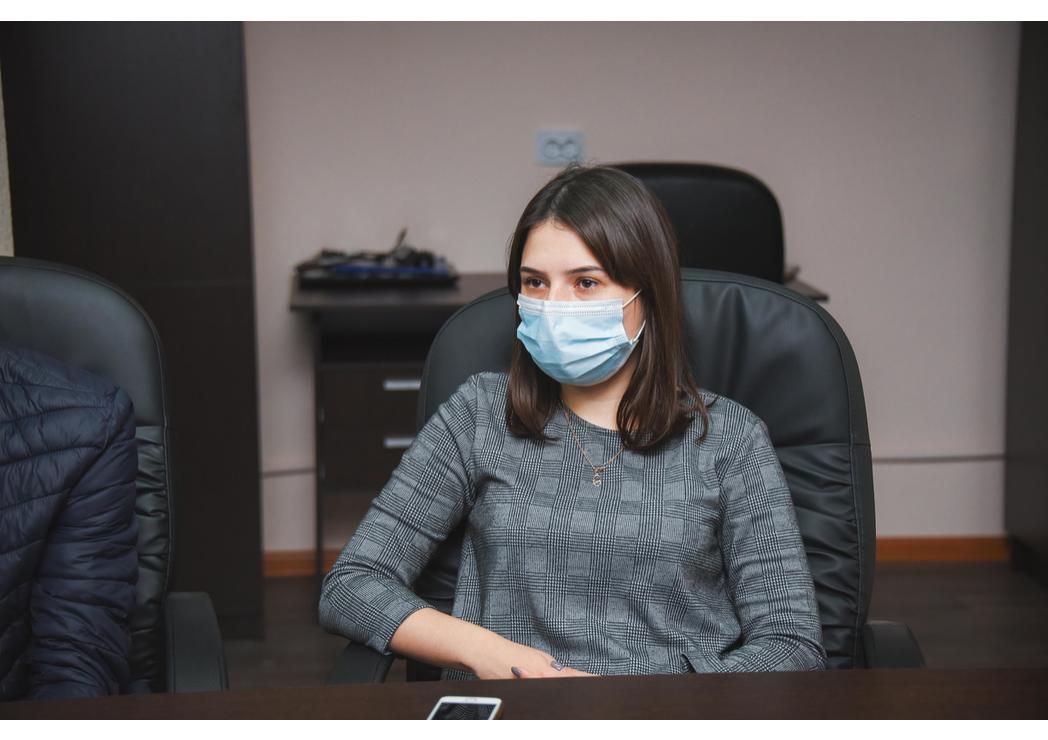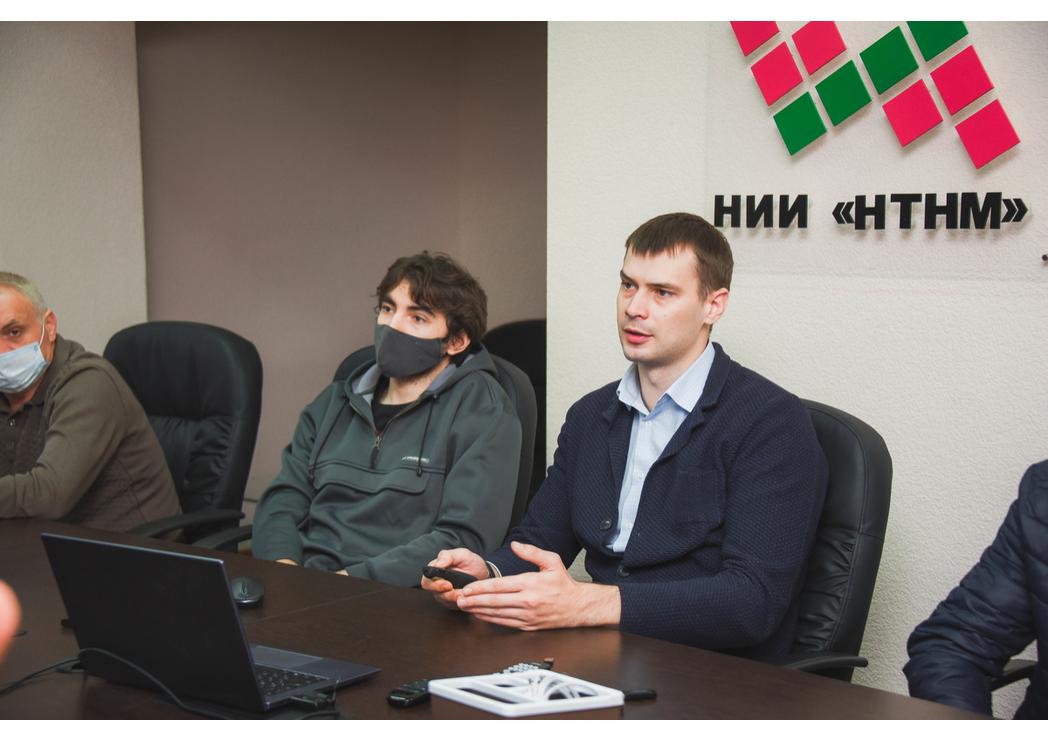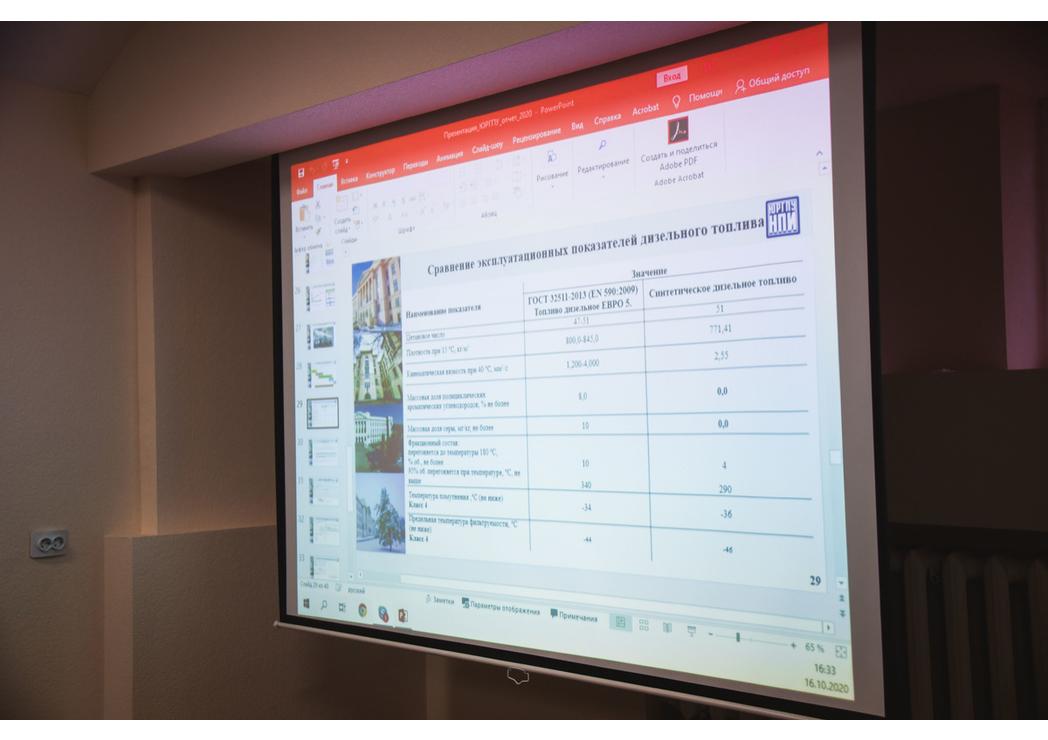On October 16, a scientific seminar dedicated to topical issues of the institute's work and the achievements of our chemists was held at the Research Institute "Nanotechnology and New Materials" of our university. This time both speakers represented the heterogeneous Catalysis department, but all interested employees could take part in the discussion. Some of them attended the event in person, some of them connected online.
- We usually hold scientific seminars about once every two weeks, and we try to make sure that representatives of several departments report. But today we have a narrower focus, - said the director of the Research Institute R.E. Yakovenko. – In addition, we are still testing a mixed format of the event, when some of the participants connect to us via Skype. I think we will continue to use this format, it allows us to significantly expand the list of seminar participants. We have already invited colleagues from different parts of the country to the discussion and were satisfied with this experience.
Roman Yakovenko made the first report on the results of the project "Scientific and technical studies of the process of converting gas into a solid product", implemented in the interests of PJSC Gazprom Neft. He praised his colleagues for their hard productive work and briefly presented the relevance of the project, the progress and results of research. Speaking about the fact that during the research it was possible to find and confirm the profitability of several options for the use and processing of associated petroleum gases at once, the project manager noted that not only he, as a scientist, was very pleased with the result, but also the customer, interested in their applied use, fully approved the results of this large-scale work.
The second report was presented by Alexey Savenko, an employee of the Research Institute. He told his colleagues in detail about the principles of operation and areas of use of the synchronous thermal analysis device combined with a mass spectrometer, and most importantly - described all possible research areas in which this modern, expensive and high–tech equipment can be used. Of course, the use of the analyzer will seriously advance the research of chemists not only from the department of heterogeneous catalysis, but also their colleagues working in other fields.
Both reports were accompanied by a lively discussion. The participants of the meeting – both those present in the conference hall of the Research Institute and those who joined the broadcast of the seminar - asked questions and made valuable comments. The scientists plan to hold new seminars more often, with the participation of colleagues from other cities and universities.




